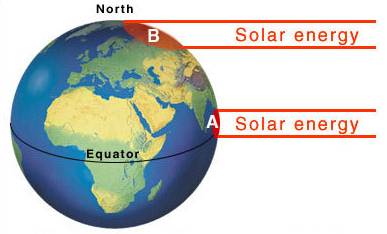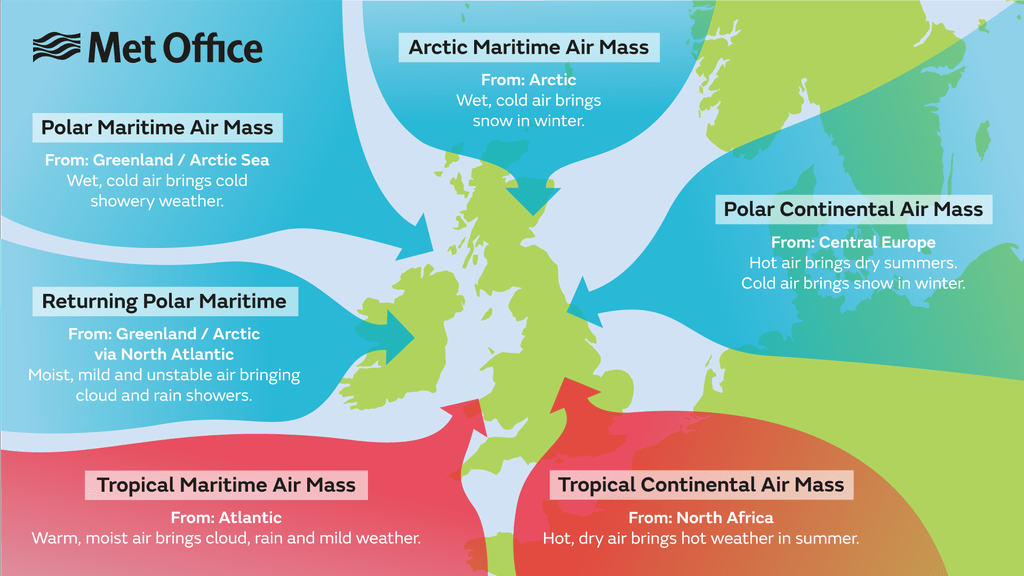What factors affect climate?
Five factors affect climate. These are summarised below.
Latitude
Temperature range increases with distance from the equator. Also, temperatures decrease as you move away from the equator because the sun’s rays are dispersed over a larger land area as you move away from the equator due to the Earth’s curved surface.

The difference in the concentration of solar energy at the equator and the poles
Altitude
Temperatures decrease with height as the air is less dense and cannot hold heat as well. As a result, the temperature usually drops by 1°C for every 100 metres in altitude.
Winds
If winds have been blown from a hot area, they will raise temperatures. If winds have originated from cold regions, they will lower temperatures. In the UK, winds originating from the south tend to be warm, whereas those from the north bring cold air. Air masses have a significant influence on the climate of the UK.

Air masses affecting the UK – source: Met Office
Distance from the sea (continentality)
Land heats and cools faster than the sea. Therefore coastal areas have a lower temperature range than those areas inland. On the coast, winters are mild, and summers are cool. In inland areas, temperatures are high in the summer and cold in the winter. Despite London and Moscow being on similar lines of latitude, London experiences much milder winters and cooler summers than Moscow due to its proximity to the sea.
Aspect
Slopes facing the sun are warmer than those that are not. Therefore, south-facing slopes in the northern hemisphere are usually warm. However, slopes facing north in the southern hemisphere are warmest.
Use the images below to explore related GeoTopics.